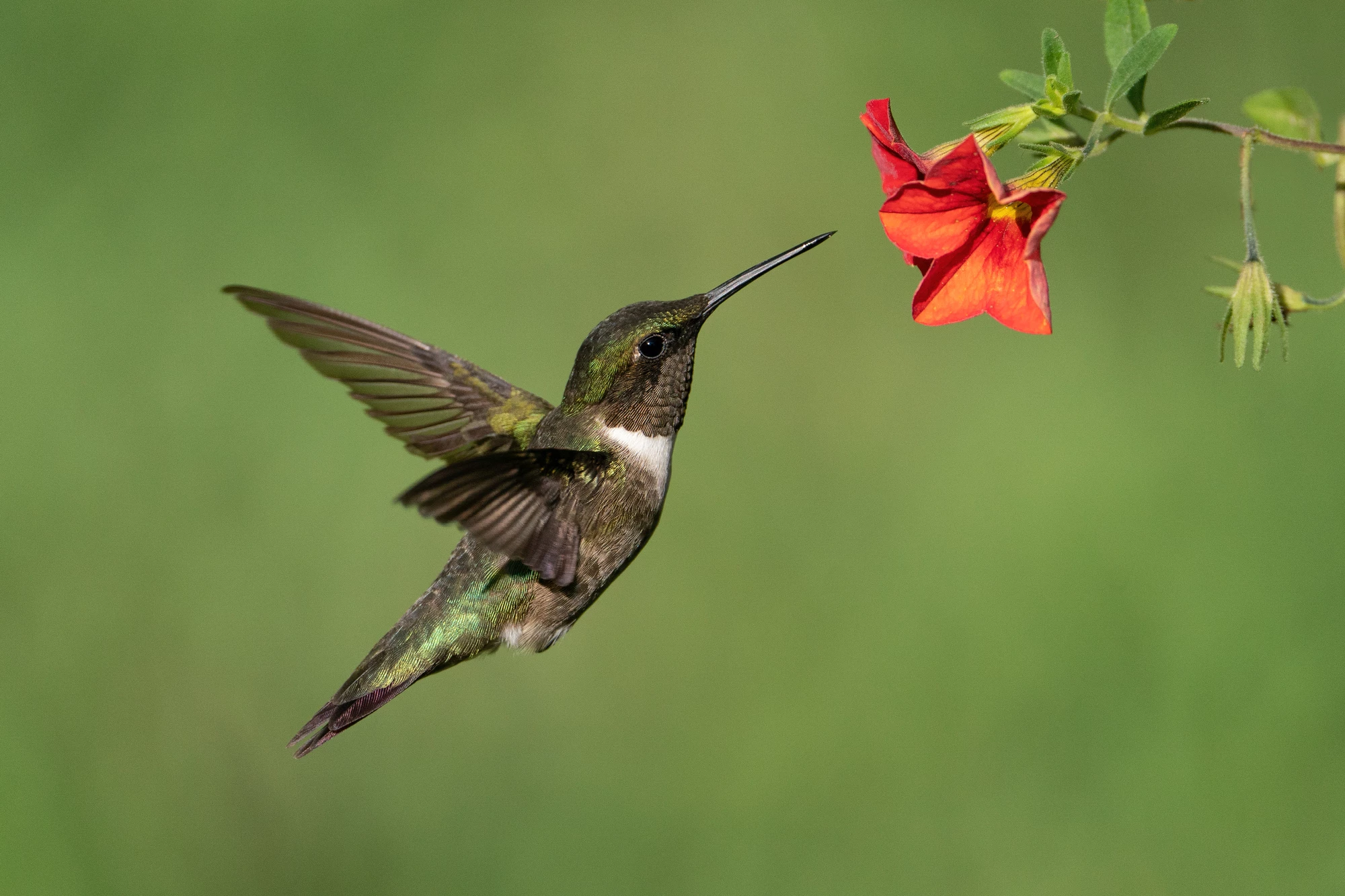If your local hummingbird is getting a bit aggressive, it may have a drinking problem. A recent study by University of California, Berkeley biologist Robert Dudley indicates that, along with nectar, hummingbirds get alcohol from flowers and feeders.
To stoke their hyperactive metabolism, hummingbirds feed mainly on nectar or sugar water, consuming up to 80% of their body weight everyday, which they supplement by catching small insects or stealing them from spider webs for protein. Hummingbirds are jerks to spiders.
However, in the wild, yeast and bacteria are all over the place, which can ferment these sugars into alcohol. The concentration is very small, but when you drink as much as a hummingbird, you're getting more than just a sugar high.
To study this, Dudley had his team of undergraduates fed spiked sugar water at different alcohol concentrations to three male Anna’s hummingbirds (Calypte anna) that lived outside the laboratory to see how they responded.
What they found was that the hummingbirds would belly up to the bar at concentrations of up to 1% as if it was plain sugar water. If the concentration was upped to 2%, the birds would drink half as much, so they get the same amount of alcohol for half the total liquid volume.
According to Dudley, this suggests that, in the wild, alcohol concentrations are probably no more than 1.5%.
When the feeders were left to sit, the concentration dropped to 0.05% as the alcohol evaporated, but that's still a lot of booze for something so small and drinks as much as a hummingbird. However, a hummingbird's metabolism runs on constant overdrive, so the alcohol gets burned off before it gets smashed and begins starting bar fights.
"This is the first demonstration of ethanol consumption by birds, quote, in the wild," said Dudley. "I’ll use that phrase cautiously because it’s a lab experiment and feeder measurement. But the linkage with the natural flowers is obvious. This just demonstrates that nectar-feeding birds, not just nectar-feeding mammals, not just fruit-eating animals, are all potentially exposed to ethanol as a natural part of their diet."
The next step in the study will be to look at what part alcohol plays in the diets of Old World sunbirds and Australian honeyeaters.
The research was published in Royal Society Open Science.
Source: UC Berkeley





